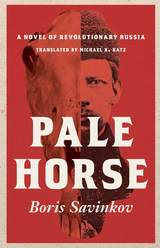


As the first intellectual history of Song, Yuan, and Ming China written from a local perspective, Localizing Learning shows how literati learning in Wuzhou came to encompass examination studies, Neo-Confucian moral philosophy, historical and Classical scholarship, encyclopedic learnedness, and literary writing, and traces how debates over the relative value of moral cultivation, cultural accomplishment, and political service unfolded locally.
The book is set in one locality, Wuzhou (later Jinhua), a prefecture in China’s Zhejiang province, from the twelfth through the sixteenth century. Its main actors are literati of the Song, Yuan, and Ming, who created a local tradition of learning as a means of cementing their common identity and their claim to moral, political, and cultural leadership. Close readings of philosophical and literary texts with quantitative analysis of social and kinship networks consider why and how the local literati enterprise was built.
By treating learning as the subject, it broadens our perspective, going beyond a history of ideas to investigate the social practices and networks of kinship and collegiality with which literati defined themselves in local, regional, and national contexts.

Where does Neo-Confucianism—a movement that from the twelfth to the seventeenth centuries profoundly influenced the way people understood the world and responded to it—fit into our story of China’s history?
This interpretive, at times polemical, inquiry into the Neo-Confucian engagement with the literati as the social and political elite, local society, and the imperial state during the Song, Yuan, and Ming dynasties is also a reflection on the role of the middle period in China’s history. The book argues that as Neo-Confucians put their philosophy of learning into practice in local society, they justified a new social ideal in which society at the local level was led by the literati with state recognition and support. The later imperial order, in which the state accepted local elite leadership as necessary to its own existence, survived even after Neo-Confucianism lost its hold on the center of intellectual culture in the seventeenth century but continued as the foundation of local education. It is the contention of this book that Neo-Confucianism made that order possible.

This volume seeks to study the connections between two well-studied epochs in Chinese history: the mid-imperial era of the Tang and Song (ca. 800-1270) and the late imperial era of the late Ming and Qing (1550-1900). Both eras are seen as periods of explosive change, particularly in economic activity, characterized by the emergence of new forms of social organization and a dramatic expansion in knowledge and culture. The task of establishing links between these two periods has been impeded by a lack of knowledge of the intervening Mongol Yuan dynasty (1271-1368). This historiographical "black hole" has artificially interrupted the narrative of Chinese history and bifurcated it into two distinct epochs.
This volume aims to restore continuity to that historical narrative by filling the gap between mid-imperial and late imperial China. The contributors argue that the Song-Yuan-Ming transition (early twelfth through the late fifteenth century) constitutes a distinct historical period of transition and not one of interruption and devolution. They trace this transition by investigating such subjects as contemporary impressions of the period, the role of the Mongols in intellectual life, the economy of Jiangnan, urban growth, neo-Confucianism and local society, commercial publishing, comic drama, and medical learning.
READERS
Browse our collection.
PUBLISHERS
See BiblioVault's publisher services.
STUDENT SERVICES
Files for college accessibility offices.
UChicago Accessibility Resources
home | accessibility | search | about | contact us
BiblioVault ® 2001 - 2024
The University of Chicago Press









